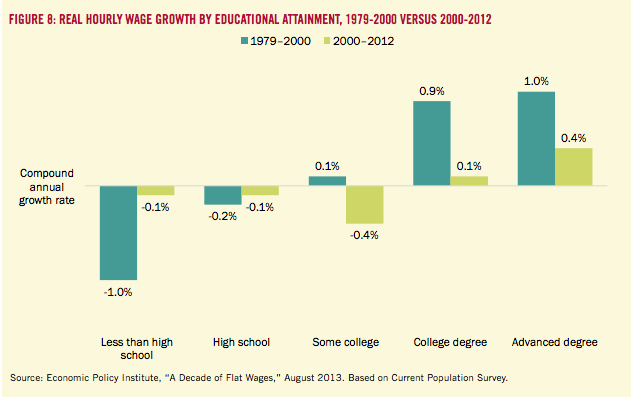America's outdated education system isn't producing the workers companies need
Many business owners say they aren’t able to get enough skilled workers to do the kind of tasks that need to get done in a competitive society right now.
In a recent Harvard Business School study on competitiveness, Professor Allen Grossman explained the need for a reformed educational system.
“There are more job openings today than ever before and 50% of businesses report they can’t get enough skilled laborers,” Grossman said. “We can’t be competitive unless we have good workers in our factories, our offices, or whatever area of our business world that we’re focusing on.”
While progress is being made, it’s happening very slowly, Grossman added.
The educational system is outdated
The current education system was built to educate Americans 50 to 70 years ago, Grossman said.
Meanwhile, in the US, every every locality is responsible for its own public education in its geographic area.
“That means we have 15,000 school districts in America. So we could look around for a lot of blame. It’s very local,” Grossman said.
While younger US workers have higher literacy scores than older cohorts in absolute terms—which reflects skills improvement over time—literacy has improved more significantly internationally.

“The bar on education is rising, and American higher education levels are no longer greater than many other nations,” according to the report.
Meanwhile, changes in the economy have raised the education levels required to thrive economically in America, putting even more pressure on the need for reform.

Role of business in improving educational results
Grossman explained that businesses are starting to invest more in educational reform. In fact, businesses spend $3 billion to $4 billion a year in America on public education, he explained, and most of it goes into nonprofits that support public education.
“Virtually all the business leaders we spoke to care—give a great deal of time, give a great deal of money,” Grossman said.
For example, Target (TGT) has embraced a concept that could be disruptive in terms of changing the ecosystem for education, Grossman explained.
In 2013, Target, in partnership with Strive and United Way Worldwide, committed to develop tools and engage a wide cross-section of community stakeholders in order to improve student outcomes in 10 communities that serve 1.5 million children.
However, the efforts are fragmented.
“They tend to be scattered. They tend not to measure whether or not they’re having an impact,” Grossman said, emphasizing their lack of overall impact.
For more on the HBS competitiveness study, please see below:
Harvard economist never thought his new study would take him where it did
Harvard professor identifies the ‘worst nightmare’ in America right now
Harvard study singles out a game-changing economic opportunity: TAX REFORM
There’s a silver lining behind the dark clouds hanging over US businesses
Harvard Business Dean tells us what this huge 5-year study is all about
Harvard Business Dean: The post-crisis monetary policy is ‘running out of runway’
How improved infrastructure could end America’s vicious cycle of poverty
Some companies have taken the next obvious step to filling jobs that sit vacant
There’s one piece of tax reform that would have a real impact with little resistance